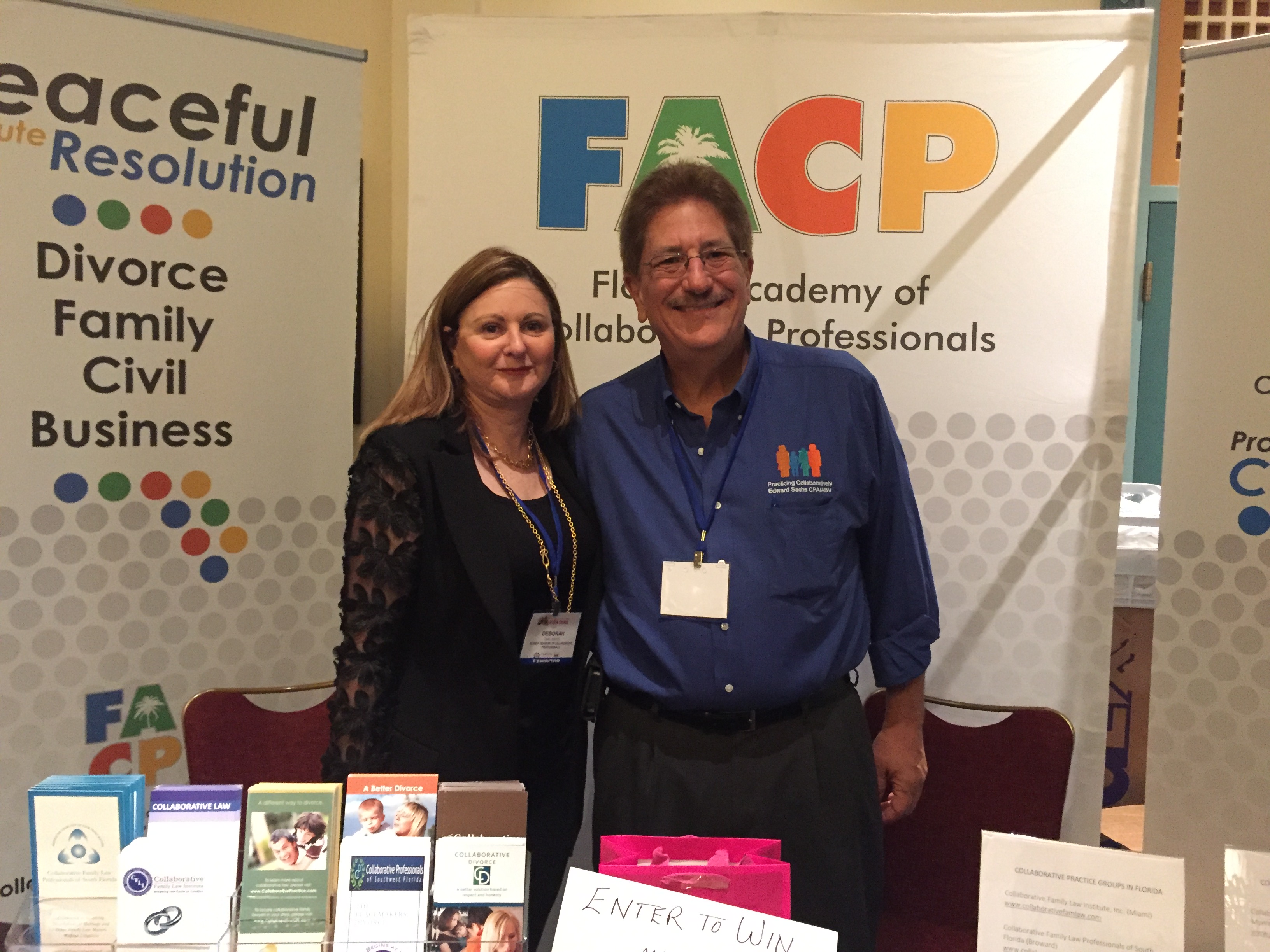We had a very successful weekend at the AAML Florida Bar Certification Review Course. Having done this event and the May AAML event in the past I can tell you that the attitude towards Collaborative is definitely changing. We got lots of business cards and lots of prospective new Collaborative professionals.
Our booth stayed busy the entire day on Friday and most of the morning on Saturday. We had lots of people from parts of the state that don’t have practice groups talk to us and many people asking about training. We even had one untrained lawyer approach us about her having a case that would be perfect for Collaborative so we hooked her up with a local Collaborative professional.
I want to thank Deborah Day for spending all of Friday working the booth with me. Thanks to Jean Westin, Connie Byrd, Jennifer Curcio, Christen Ritchey, Nancy Harris and Mary Elias for helping out at the booth. And thanks to all of the Collaborative professionals that stopped by the booth to offer their help and support and most importantly, for talking up Collaborative throughout the conference. We had many people come to the booth after having talked to someone in the seminars.



